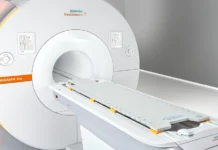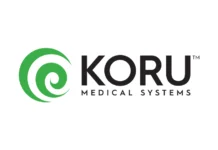The U.S. Food and Drug Administration (FDA) recently released draft guidance on accepting foreign clinical trials in support of premarket submissions for medical devices.
The draft guidance communicates considerations that sponsors of device submissions should take into account when initiating, or relying on previously collected data from, an outside the United States (OUS) clinical study to support an investigational device exemption (IDE), premarket notification [510(k)], de novo petition, humanitarian device exemption (HDE), or premarket approval (PMA) application, according to a prior notice by the FDA.
"The guidance describes special considerations that apply when using such data, including applicability to populations within the United States and study design issues and provides recommendations to assist sponsors in ensuring their data are adequate under applicable FDA standards to support approval or clearance of the device in the United States," the summary in the Federal Register states.
The draft guidance titled, Acceptance of Medical Device Clinical Data from Studies Conducted Outside the United States [PDF], seeks to clarify FDA's use of an increasing number of clinical studies conducted outside the U.S. and used by sponsors and device manufacturers for premarket submissions and investigational device exemptions.
"The number of IDE applications and submissions for marketing authorization supported by OUS clinical trials has increased in recent years and will likely continue to increase in the future," the guidance explains. "This increasing globalization of clinical trials presents challenges to both US and foreign regulators. Among the challenges are resource constraints that impact the number of foreign clinical site inspections and unnecessary duplication of clinical studies and administrative burdens."
Under Section 1123 of the Food and Drug Administration Safety and Innovation Act (FDASIA) of 2012, clinical data from foreign studies should be accepted by the FDA provided that such studies comply with U.S. federal standards on good clinical practices (GCPs). The draft guidance seeks to clarify the processes by which the FDA applies those standards.
According to a Regulatory Affairs Professional Society (RAPS) article, OUS studies can also be accepted by the FDA if they meet local standards of the country where those studies are conducted, provided such local standards must be shown by a company to be either equal to or greater than U.S. requirements for human protection under the 1983 version of the Declaration of Helsinki.
Any OUS data used to support device premarket applications, including 187 510(k)s, premarket approvals (PMAs), and de novos should constitute "valid scientific evidence," the FDA stated in the guidance. The document defines it as evidence from "well-controlled investigations, partially controlled studies, studies and objective trials without matched controls, well-documented case histories conducted by qualified experts, and reports of significant human experience with a marketed device, from which it can fairly and responsibly be concluded by qualified experts that there is reasonable assurance of the safety and effectiveness of a device under its conditions of use."
The new guidance could facilitate the movement of medical devices along the regulatory pipeline, Vicki Anastasi, VP and global head of medical device and diagnostics research at contract resource organization (CRO) Icon, told Outsourcing-Pharma.com
"Assuming that collected data are scientifically valid and compliant, the clarity provided by this guidance could shorten the clinical trial cycle time, expedite data collection, and move more products in the global market faster," Anastasi said. "This increase in efficiency would certainly be bolstered if these trials also employ smart strategies such as adaptive design, risk based monitoring, and early collection of health economic data."
The FDA is accepting written and electronic comments on the draft guidance until July 20, 2015.

















